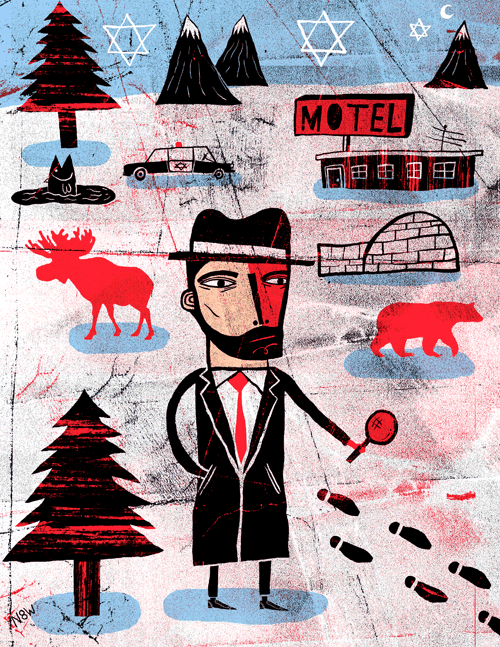Nabokovilia: Michael Chabon

The Yiddish Policemen’s Union (2007)
Afterword: ...the Zugzwang of Mendel Shpilman was devised by Reb Vladimir Nabokov and is presented in Speak, Memory. (p. 418)
The Amazing Adventures of Kavalier & Clay (2000)
Here, in a weird radiance cast by the tails of a thousand writhing glowworms, sits on a barbarous throne a raven-haired giantess with immense green wings, sensuously furred antennae, and a sharp expression. She is, quite obviously, the Cimmerian moth goddess, Lo. We know it before she even opens her rowanberry mouth.
"You?" the goddess says, her feelers wilting in evident dismay. "You are the one the book has chosen? You are to be the next Mistress of the Night?"
Miss [Judy] Dark -- wreathed discreetly now in curling tufts of dry-ice smoke -- concedes that it seems unlikely. (p. 271)
Wonder Boys (1995)
"You have to keep with it," I told him. "You have to read on." I was making the argument I had made to myself, over the years -- to the harsh and unremitting editor who lived in the deepest recesses of my gut. It sounded awfully thin, spoken aloud at last. "It's that kind of a book. Like Ada, you know, or Gravity's Rainbow. It teaches you how to read it as you go along. Or -- Kravnik's." (p. 312)
Additional Chabon/Nabokov material:
"You have to keep with it," I told him. "You have to read on." I was making the argument I had made to myself, over the years -- to the harsh and unremitting editor who lived in the deepest recesses of my gut. It sounded awfully thin, spoken aloud at last. "It's that kind of a book. Like Ada, you know, or Gravity's Rainbow. It teaches you how to read it as you go along. Or -- Kravnik's." (p. 312)
Additional Chabon/Nabokov material:
- Michael Chabon at the Nabokov Museum (also collected in Maps and Legends)
- Michael Chabon on Wes Anderson
VN Sighting: Michael Chabon on Wes Anderson's Nabokovian Worlds
In this lovely essay for the New York Review of Books, Michael Chabon notes the parallel scale-world-building impulses of Vladimir Nabokov and Wes Anderson:
Vladimir Nabokov, his life cleaved by exile, created a miniature version of the homeland he would never see again and tucked it, with a jeweler’s precision, into the housing of John Shade’s miniature epic of family sorrow. Anderson—who has suggested that the breakup of his parents’ marriage was a defining experience of his life—adopts a Nabokovian procedure with the families or quasi families at the heart of all his films, from Rushmore forward, creating a series of scale-model households that, like the Zemblas and Estotilands and other lost “kingdoms by the sea” in Nabokov, intensify our experience of brokenness and loss by compressing them. That is the paradoxical power of the scale model; a child holding a globe has a more direct, more intuitive grasp of the earth’s scope and variety, of its local vastness and its cosmic tininess, than a man who spends a year in circumnavigation.Chabon himself is no stranger to world-building, or to Nabokovilia: he has made Nabokov references in Wonder Boys, The Amazing Adventures of Kavalier and Clay, and in The Yiddish Policemen's Union.
